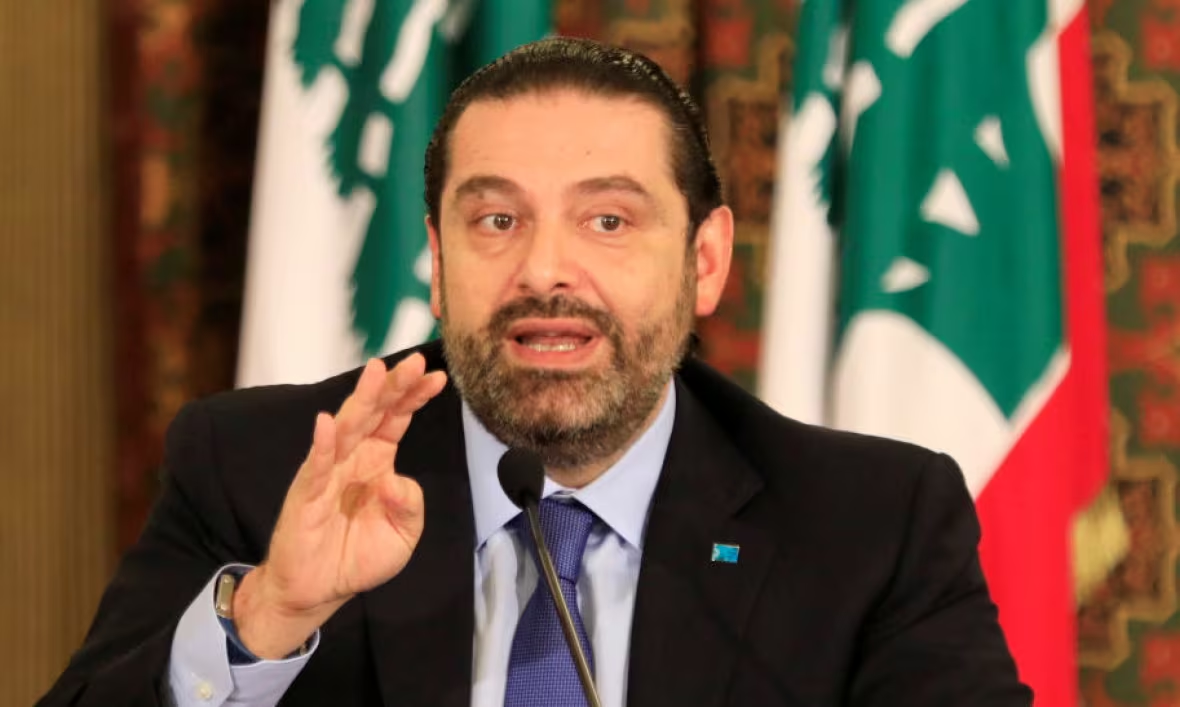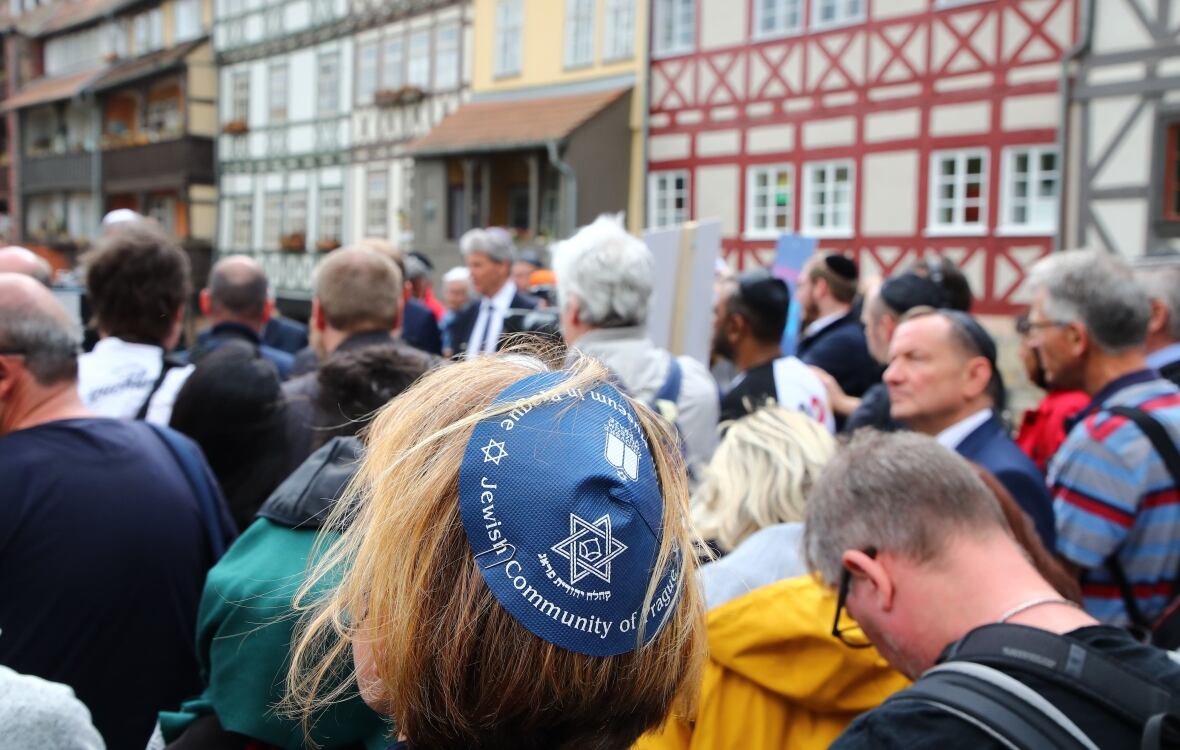Syrian refugee camps 'desperately short of resources,' Canada sends $19.5M in aid
Newsletter: A closer look at the day's most notable stories

Welcome to The National Today newsletter, which takes a closer look at what's happening around some of the day's most notable stories. Sign up here and it will be delivered directly to your inbox Monday to Friday.
TODAY:
- Syria facing major humanitarian crisis as government forces take aim at final rebel stronghold of Idlib province, UN warns
- Germany's recording industry ends its annual music awards in midst of roiling controversy over best-album winners' anti-Semitic lyrics
- Trump is calling Iran nuclear agreement "ridiculous" — here are some of the hundreds of other issues he has described the same way
- Missed The National last night? Watch it here
The next Syrian disaster
Syria is on the cusp of another major humanitarian crisis, the United Nations warns, as government forces take aim at the final rebel stronghold of Idlib province.
"We were and are concerned on the humanitarian side by Idlib. Because Idlib is the big new challenge, 2.5 million people," Staffan de Mistura, the UN's Syria envoy, said as an international donors' conference opened in Brussels yesterday.
"We hope that this would be an occasion for making sure that Idlib does not become the new Aleppo, the new Eastern Ghouta."

The United Nations is seeking $6 billion US to deal with the needs of the more than 5.5 million people who have already been displaced by the fighting.
This morning, Canada announced $19.5 million in funds for humanitarian assistance in Syria and neighbouring Lebanon, directed towards health, water, sanitation and protective services.
The amount is part of the federal government's 2016 commitment to direct $1.6 billion to the region and its crises over three years.

The UN raised only half of the $3.35 billion it sought for humanitarian relief in Syria last year.
Mark Lowcock, the head of its global aid operations, is warning that programs will have to be cut back if donor nations don't open their wallets this time. "We are quite desperately short of resources," he told the media.

Speaking in Brussels today, Lebanese Prime Minister Saad Hariri sounded the alarm about the "worsening economic conditions" in his country due to the strain of the crisis, saying they might lead to political and social unrest.
"The threat is real," he said, describing Lebanon as "one big refugee camp."
There are hopes that the donor conference might add some momentum to a UN-led peace process that has seen eight rounds of negotiations, but little progress.

António Guterres, the head of the UN, told reporters that while there is a shared recognition of the need for a political solution to Syria, there is no agreement on how to move forward.
"This is the impasse in which we are, and this impasse is extremely negative and dangerous," he said.
Russia, Iran and Turkey are carrying out their own peace talks, but that process also appears to be stalled.

Idlib will "certainly be the next big battle," Jakob Kern, the World Food Program director in Syria, told the Voice of America this week.
"I just hope for the sake of the 2 million people that are living there, that we find a political solution. Because if we do that again, if we see the same pattern again, it is going to be a much bigger catastrophe than we have seen in east Aleppo."
Quote of the moment
"She was by herself. I checked her pulse and she was alive. I think she was injured on her back and her legs. I covered her and was talking to her. Her name is Samantha, I hope she survived."
- Abdellah Massaoudi, who came to the aid of victims in Monday's van attack in Toronto, providing his belt as a tourniquet for one woman, and comforting another. Court documents indicate that there are two injured women with that name, but a number of the dead have yet to be identified.

More on the van attack in Toronto:
- 'We don't want to rush this,' coroner says of painstaking work to ID victims of Toronto van attack
- #TorontoTheGood: How residents are supporting victims, each other in wake of van attack
- Man arrested after Toronto van attack charged with 10 counts of first-degree murder
- Facebook post linked to Toronto van attack points to insular, misogynistic world of 'incels'
- What Toronto can learn from other cities struck by vehicle attacks

An 'Echo' of Germany's past
The German recording industry has put an end to its annual music awards in the midst of a roiling controversy over its best-album winners' anti-Semitic lyrics.
The Echo Awards, Germany's answer to the Grammys since 1992, no longer exist.
The move follows two weeks of criticism and protests after the rap duo Kollegah and Farid Bang were awarded album of the year for Jung Brutal Gutaussehend 3 (Young, brutal, and good-looking).

A video for a song called Apokalypse (Apocalypse) from a previous album by Kollegah featured a sinister-looking banker with a Star of David ring.
Kollegah, a 33-year-old whose real name is Felix Blum, has said that the lines have been "misinterpreted," and offered free concert tickets to Jewish fans as an apology.

But those steps failed to quell concerns. Several previous Echo winners have returned their awards in disgust. And a number of politicians have registered their disapproval.
"A line was crossed," Monika Gruetters, the German culture minister, said this week. "It is not a question of taste, but about the responsibility of the art and the artist for our community."
"Anti-semitic provocations do not deserve a prize; they are repugnant," Heiko Maas, the justice minister, told Der Spiegel.

Anti-Jewish incidents are on the rise in Germany, and there has been widespread distress over an attack in Berlin last week in which two young men wearing skullcaps were assaulted by a man wielding a belt.
Chancellor Angela Merkel has condemned the attack, and there were marches across the country today in support of the Jewish community.
- Like this newsletter? Sign up and have it delivered by email. You may also like our early-morning newsletter, the Morning Brief — start the day with the news you need in one quick and concise read. Sign up here.
The house of ridiculous
Donald Trump doesn't like the Iran nuclear deal. So much so that he tagged it with one of his favourite adjectives yesterday.
"Ridiculous," the U.S. President said during a meeting with his French counterpart Emmanuel Macron. "It never should have been made."
Russia, China, France and Great Britain, the other signatories to the 2015 agreement, disagree.
So do many arms control experts, who say Iran is actually living up to its commitments to reduce its uranium stockpile and curtail weapons development under the Joint Comprehensive Plan of Action. Even the head of Israel's military, Lt. Gen. Gadi Eiskenkot, thinks it's working.

In the month of April alone, he has used that word to describe California's sanctuary laws, immigration policies along the U.S. border, and the FBI raids on the offices, home and hotel suite of Michael Cohen, his personal attorney.
The U.S. court system is "ridiculous," according to the president. So too are allegations that he colluded with Russia to win the 2016 election. As is some baroque aspect of federal ethanol policy.
A search of Trump's speeches, interviews, press conferences and tweets turns up 329 "ridiculous" things, dating all the way back to a 1980 sit-down with gossip columnist Rona Barrett, in which he opines on the Iran hostage crisis.
(The president's surrogates like to lean on the word too. Kellyanne Conway recently told Fox News that it was "ridiculous" to assert that he is soft on Russia. Something White House press secretary Sarah Sanders repeated almost verbatim a few days later.)

Although it's absurd to suggest that "ridiculous" is in the same league as "crooked" (1,863 uses), "strong" (2,789), or all-time champion "great" — expressed a whopping 18,064 times.

Take Trump's warning yesterday that Iran will have "big problems" if it restarts the nuclear program it halted under the deal he wants to tear up.
The price of oil spiked to $75.47 US, a three-year high, in the immediate wake of his remarks.
Later in the day, when Macron and Trump again appeared before the press and the U.S. president suggested that a new nuclear deal could be close — at least between America and France — oil fell, closing at $67.70.
A $7.77 price swing in a single day of trading. Ridiculous.
What The National is reading
- 10 countries are using Canadian filtering technology to censor the internet (CBC)
- Danish sub inventor gets life sentence for murdering journalist (BBC)
- Mexico's outrage after film students kidnapped and murdered (LA Times)
- Plane with engine trouble lands on Calgary roadway (CBC)
- U.S. team in refugee camps investigating atrocities against Rohingya (Reuters)
- Toxic coral in home aquarium blamed for Quebec family's illness (CBC)
- Japan developing winged 500 km/h train (Asia Times)
- Hank Azaria 'willing to step aside' as voice of The Simpsons' controversial Apu (Guardian)
Today in history
April 25, 1992: Stephen Harper and John Tory on opposing sides of anti-Reform Party attack ads
The federal Progressive Conservatives were unpopular and under siege in the spring of 1992. Jean Chrétien's Liberals were way out in front in the polls, but the PCs decided to focus on a right-wing foe — the Reform Party — by running radio attack ads in Ontario. A young Stephen Harper, Reform's director of research, takes on a young John Tory, the PC campaign co-chair.
Sign up here and have The National Today newsletter delivered directly to your inbox Monday to Friday.
Please send your ideas, news tips, rants, and compliments to [email protected].


